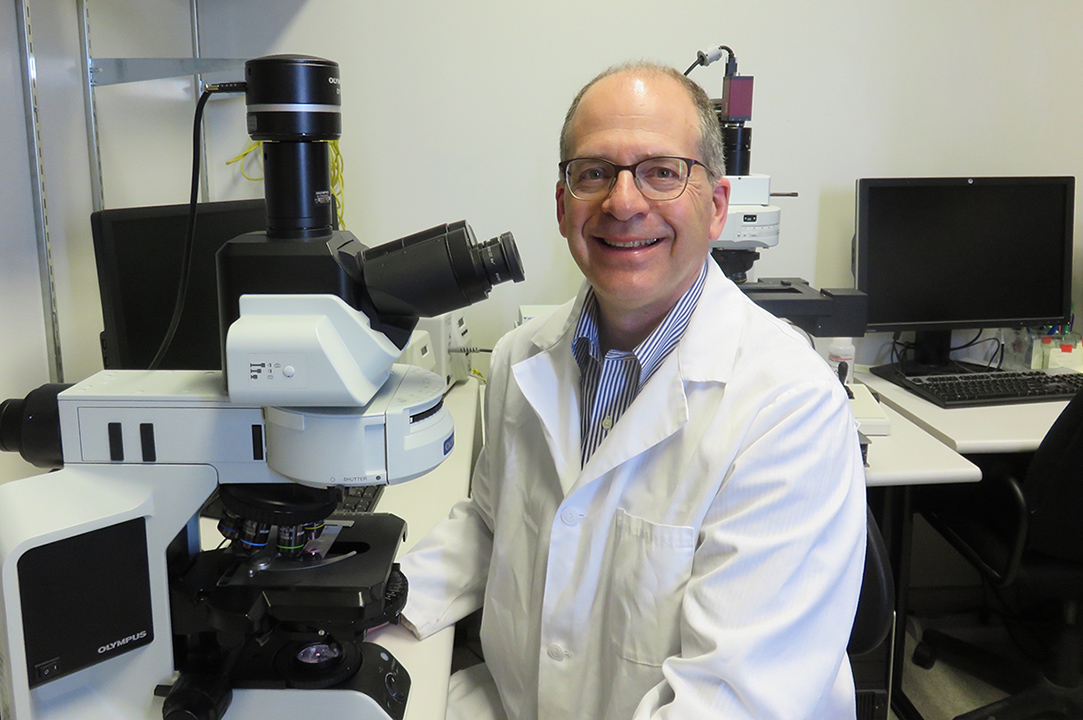
Vital multiple sclerosis research at USask to continue with $750,000 donation from Saskatoon City Hospital Foundation
A new gift of $750,000 from the Saskatoon City Hospital Foundation (SCHF) will provide funding to the University of Saskatchewan (USask) College of Medicine to support the Saskatchewan Multiple Sclerosis (MS) Clinical Research Chair for the next three years.
Chairholder, Dr. Michael C. Levin (MD), along with his team of researchers have been working to develop medications that can inhibit the nerve cell damage that occurs due to diseases such as MS.
Saskatchewan has one of the highest rates of MS in the world, with an estimated 3,700 people in the province living with the disease and there is no known cure.
“Funding is a crucial part of continued research and discovery for MS research and the commitment from our partners at the Saskatoon City Hospital Foundation will help us get closer to positive outcomes for MS patients everywhere,” said Dean of the College of Medicine, Dr. Preston Smith (MD). “Because of their generosity, Dr. Levin and his team can continue their ground-breaking work to find treatments for this devastating disease.”
MS is a disorder of the central nervous system affecting the ability of the brain and spinal cord to communicate. This results in muscle weakness, a lack of muscle control, problems with vision and other neurological symptoms.
Since the chair was first established in 2017, Dr. Levin and his team have made incredible progress and discovered that a protein in nerve cells, named A1, is abnormal in the brains of MS patients. Specifically, that A1 gets stuck in the wrong part of nerve cells and triggers their death.
Using state-of-the-art drug design, Dr. Levin’s team has studied drug therapies and discovered a drug treatment that return A1 to its normal location, not only preventing nerve cell death, but promoting nerve cell regeneration. By blocking nerve cell death, these innovative drugs can prevent a lifetime of disability with MS.
The SCHF’s latest commitment of $750,000 over three years will support the chair’s greatest needs, including infrastructure, research support and necessary equipment as part of the vision to advance treatment for and ultimately end MS.
“We have one of the best, most celebrated MS researchers on the planet here in Saskatoon, with an amazing team that’s working to find a cure to benefit people of Saskatchewan and people of the world,” said Steve Shannon, CEO of SCHF.
SCHF has a decades-long history of supporting MS research in Saskatchewan. In 2010, the foundation joined the USask College of Medicine and the Saskatchewan Health Research Foundation to raise $5 million toward the creation of the chair position.
To learn more about the exciting breakthroughs in MS research happening at the University of Saskatchewan, visit https://research-groups.usask.ca/skms-office/
This gift is part of the University of Saskatchewan’s Be What the World Needs Campaign.
Together, we will undertake the research the world needs. We invite you to join by supporting critical research at USask.
